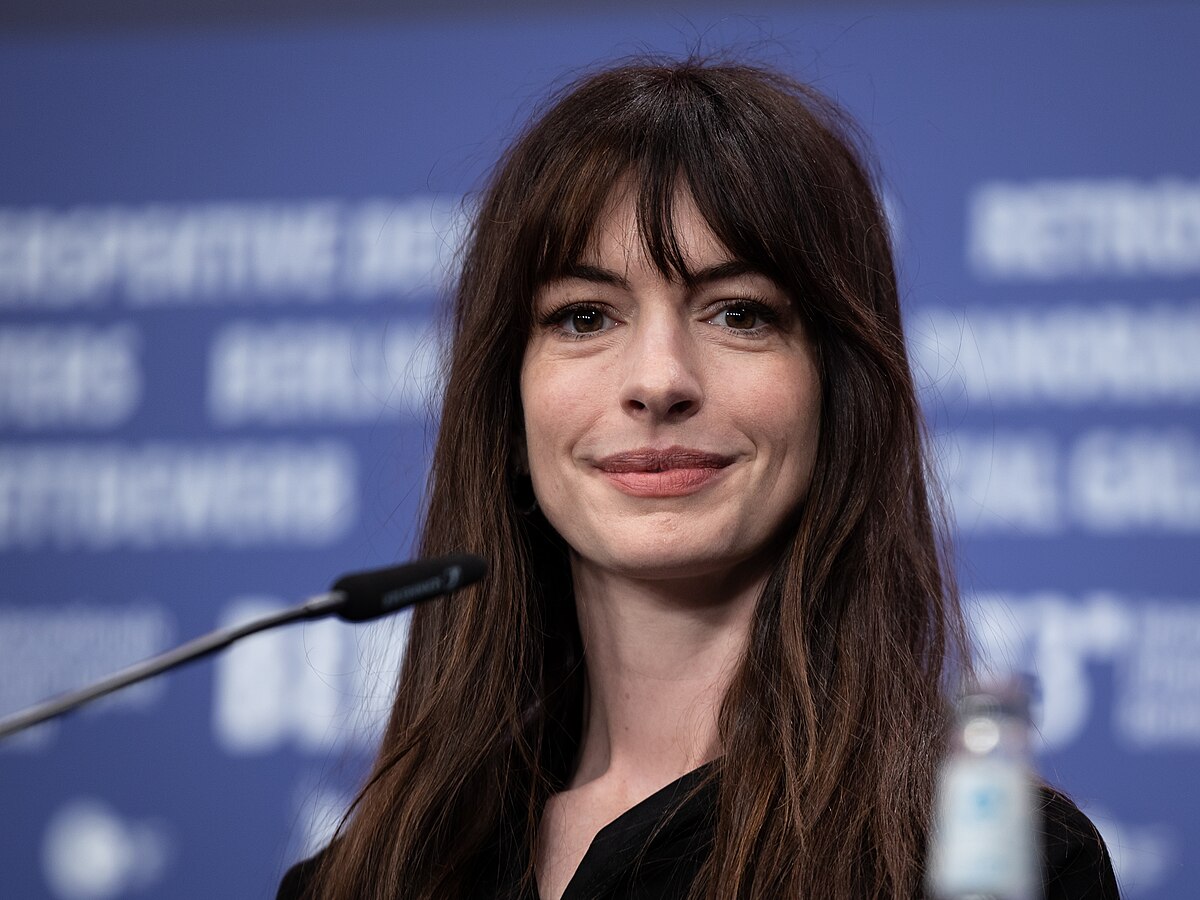Features Editor Govhar Dadashova makes a compelling case for why romantic comedy films like ‘The Princess Diaries’ franchise should be taken seriously. She also reflects on the importance of seeing women onscreen in positions of power and how this translates to our political reality.
When you think about politics, it is likely that your mind turns to the big-picture events in current affairs or the names of powerful leaders in government. I would be impressed, and honestly pleasantly surprised, if you thought of your own lived experiences immediately. The personal might be deeply interconnected with the political, but it still feels counterintuitive to think of ourselves rather than the Prime Minister or Foreign Secretary first.
They are the ones who call the shots, draw up the blueprints for battle and lead the nation from their fancy offices in Westminster. The majority of us will never go into government or participate in the rowdy debates which take place in the House of Commons. (Which is a shame because I think I would make an excellent Speaker of the House – conflict resolution is a skill which all eldest daughters master with flying colours.)
But to assume a role of unimportance, or worse, to convince ourselves that our voice does not matter, is a foolish and risky step to take. Yes, democracy in Britain and elsewhere is deeply flawed. There is so much that we could change and so much that we should work to change. However, to simply discard our hard-earned rights as citizens or to resign ourselves to a broken political system is illogical.
Undoubtedly, it is much easier to say that when you come from a place of privilege and security. That is crucial to acknowledge and appreciate. But I continue to stand by the case that we should not only be fighting against authoritarianism or fascism, but actively working to extend democracy’s life for generations to come.
So, if you have read the title of this article, you are probably thinking to yourself: how does this relate to ‘The Princess Diaries’ franchise of the early 2000s? What can a cinematic masterpiece, with a geeky but lovable high school student-turned-queen of a small European country tell us about politics or the role of female policymakers?
Well, I would argue quite a lot. If you have never watched the first or the second film, please do so immediately. It feels like the emotional equivalent of a cosy sweater and a hot chocolate on a cold October evening which, almost halfway into the term, everyone is in desperate need of recreating – myself included. It makes a fantastic comfort movie for these exact reasons. It is also an important social commentary on what it means to be a young woman, trying to find your place in the world and navigating the ups and downs of puberty.
Mia Thermopolis, the protagonist of ‘The Princess Diaries’ played by Anne Hathaway, portrays the complexities of being a teenage girl. She feels uncomfortable not only in her own skin, but in the way she moves through the world. Mia is convinced that she is not confident enough, not pretty enough and not smart enough. She is simply not enough: not for the boy she likes, not for the group of bullies who make fun of her fear of public speaking and certainly not enough to be the ruler of a country.
She is not the only one who thinks that way. According to research, girls tend to become far less outspoken and self-assured by the time they are fourteen years old. In contrast, this same change does not tend to occur in boys.
I went to a same-sex school for most of my education, save for four years I spent in mixed schools. I was lucky enough to be in an empowering environment, where discussions around feminism and pursuing your dreams were so commonplace that we took it for granted.
I was a competitive debater with my best friend for five years, regularly participated in Model United Nations simulations and was taught how to navigate traditionally male-dominated spaces with ease. Whenever I felt like I wanted to become small or speak in whispers, I was constantly reminded and pushed to do the exact opposite.
Despite these positive experiences, I continue to feel the weight of imposter syndrome. Whether it comes to writing or public speaking, I might have become better at quieting my anxiety, but it always lingers in the back of my mind. Am I good enough? Is my work good enough? Am I making myself proud?
This is certainly a feeling shared by all of us who identity as perfectionists or overachievers, irrespective of your gender. However, this can be particularly acute, and at times paralysing, for girls, especially when it comes to trusting ourselves and jumping into the unknown.
At university, I have realised that most women do not grow up in environments which actively encourage them to act loudly or boldly. We have been socialised in many ways to extinguish the bright flame that lives within all of us: the source of our ambition, inspiration and drive to succeed.
We snuff it out to make others feel comfortable, shrinking ourselves to fit the neat little boxes which society has created for us. Like Mia, too many of us have allowed – and continue to allow – self-doubt to suffocate our potential. And unfortunately, we do not all have the wise and indomitable Julie Andrews to act like our fairy godmother.
Movies like ‘The Princess Diaries’ are rare examples of media which depict political leadership, bravery and confidence as qualities you work to master, not ones that you are simply born with. At the start of the first film, Mia immediately wants to throw up thirty seconds into making a speech for her debate class. By the start of the second one, she is not only graduating from a political affairs degree in Princeton, but learning how to speak with ease in front of hundreds of strangers.
Does her anxiety or doubt ever fully go away? No, but she learns how to manage self-criticism, using her fears and worries to make herself more relatable to the people of Genovia. She is an appealing leader not because she always gets it right, but because every time she is knocked down, she gets back up and tries again.
Perhaps this is a lesson for the politics of our time too. Women are rarely given the opportunity to fail multiple times, at least not with the same grace or respect which their male counterparts are afforded. Mia faces similar challenges. In the second movie, she is told that she must be married in order to be queen. She momentarily chooses to sacrifice her desire to find true love because she does not want to let her ancestors down. However, she eventually realises that it is completely unfair of the Parliament or for any male-dominated body to make such judgements on women, when the same rules are not extended to men.
Yes, she falls in love with Nicholas, played by Chris Pine. But she becomes queen on her own terms. Affection never comes at the sacrifice of losing her ambitions or goals. He encourages her to be the best version of herself and she does likewise for his career. This is what young women should be seeing in films instead of the exhausted trope where the woman is constantly making compromises for the man. If love does not stop men from pursuing their ambitions, why should we expect women to act any differently?
In 2024, we have an array of female policymakers in the top positions of power. From Mexican President Claudia Sheinbaum to US Vice-President Kamala Harris to British Deputy-Prime Minister Angela Rayner – there is a whole list, whereas in 2001, there were only a handful of names. This does not mean that sexism has gone away. Women are severely persecuted across the world, fighting for their basic human rights, such as in Iran and Gaza. To clarify, one movie or a few of them cannot provide a balm to solve all of the issues.
However, they can provide a source of hope and inspiration for at least a handful of women, even if it is only in one part of the world. Like a ripple effect, these seeds of unbridled optimism and ambition can travel far and wide. The ultimate goal for us is to continue fighting for the rights of women everywhere, not only to lead countries, but to lead peaceful lives where their human freedoms are protected. We should all aspire to exist in a world where powerful women are the norm, not simply the exception or another statistic to include in a news article.
To quote the great poet Maya Angelou:
“You may shoot me with your words,
You may cut me with your eyes,
You may kill me with your hatefulness,
But still, like air, I’ll rise.”
— Still I Rise
Movies like ‘The Princess Diaries’ remind us to dream bigger and to believe in a future where all women, irrespective of where they come from or where their journey begins, can lead a life more fulfilling than they ever imagined.
They also remind us that women are a critical part of our political systems. They are important not just because they are wives or mothers or because they form roughly half of the population. They are important because of their inherent strength, knowledge, and resilience. To underestimate the power of women in politics, or even the importance of female representation in media, is to make the most foolish mistake of all: to forget that when women come together, magic happens. ‘The Princess Diaries’ franchise might have anticipated a generation of incredible female policymakers, but the truth is that we have so much further to go.










